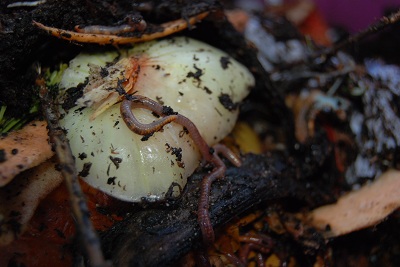Author: Brenton Neal

Your produce will only be as good as the soil; ideal conditions are unlikely by chance. If the soil is not just right, your seeds will not fulfill their potential. But there is much more to it than nutrition. The worm’s digestive process produces what many consider to be the ideal soil amendment, vermicompost. Vermicompost is worm manure called castings. Vermicompost or worm manure is a complete soil amendment that can be easily manufactured.
Vermiculture is worm farming. Beginning vermiculture is easy and inexpensive. Recycle your table scraps, till the soil and fertilize your growing vegetables all at the same time with a mini worm factory. Worms will make your garden grow. The worm passes through the soil, consumes its weight everyday and leaves behind castings.
In addition to making vermicompost, worms reproduce. The rapidly multiplying worms can be added to the garden, as long as your soil is light and friable. Heavy clay is too compact and fine sand is too scratchy, amend either with lots of organic matter to keep worms alive and happy.
Once there, they burrow through the soil tilling leaving garden friendly castings, air and space for water; it is a beautiful symbiosis. Living in the soil, worm tunnels create a healthy environment for breaking down bacteria water and organic matter.
The best soil has a porous consistency and holds water well; it has a PH that plants thrive in and contains necessary nutrients. Soil can be scientifically tested for PH and nutrient deficiencies and the soil can be amended to maximize conditions. But there is another aspect: bacteria, fungus, aeration and the root micro organic environment.
Vermicompost is a coffee grounds-like medium that worms create from recycled palnt-based kitchen scraps. . . except citrus! The worm’s digestive system contains bacteria and fungus that are beneficial to plant growth and chemical compounds in castings promote vigorous plant development.
Besides working the soil, worms and their manure provide nutrients in a form readily available to plants. The nutrient content of castings is dependent on what is fed to the worms. If worms are fed food waste or manures the result is high nitrogen, phosphorous, potassium and an extremely fertile amendment.
Mixing vermicompost with compost, coconut husk fiber, topsoil, and perlite or vermiculite in equal amounts creates a fabulous potting soil. Because it is from earthworms the amendment will not burn plants regardless of excessive amounts. For worm biology detail go to wormclassroom.org.
Four types of earthworms that you may run into in the garden are: Red worms, Manure worms, Garden worms and Nightcrawlers; they all till the soil.
Red worms are our choice for the Worm Bin under PROJECTS in the navigation bar.
